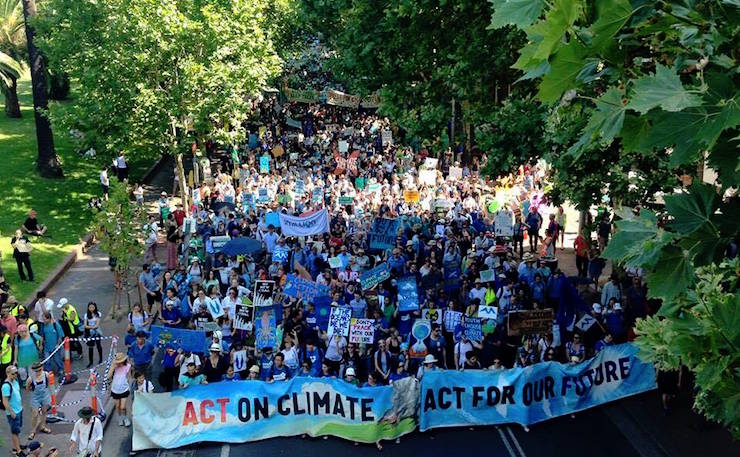Workers and unions have long led the way on action to tackle climate change, write Giri Sivaraman and Stuart Traill.
On the face of it British oil giant BP and environmental activists might not have much in common. But perhaps they do. Last month, BP made a dramatic pledge: that it would aim to eliminate or offset by 2050 all of the planet warming emissions caused by the burning of the oil and gas it pumps out of the ground.
BP CEO Bernard Looney said the company would push for governments to take stricter measures on climate change.
Not surprisingly BP’s comments were at best offered cautious praise by environmental groups. In some cases like the environmental group 350.org, the comments were met with incredulity.
Workers, too, are often suspicious of moves to a carbon-neutral economy. Privatisation of power plants is often related to a loss of jobs in power generation, importing cheaper labour, non-unionised workplaces, and loss of opportunity for employment and steady work. But more than that, it’s important to remember that work is more than just a pay cheque for most people. It brings a sense of identity, value and purpose, and a connection to a community.
Disrupting all of those things is not something that should be taken lightly or left simply to the market. However disruption to deal with climate change is not based on neo-liberal ideology that privatisation is better that state control, it’s based on the scientific reality that if we don’t change we won’t have a liveable future for many.
If handled well, climate change initiatives should produce rewarding jobs in emerging industries. Modelling of global employment impacts in the energy sector by the Institute for Sustainable Futures found that if we meet the Paris Climate Agreement, there will be jobs growth across almost all occupational categories.
But unions and workers have always been at the forefront of environmental sustainability. It was, of course, Jack Mundey, Australian unionist, who led the New South Wales Builders Labourers Federation and the famous Green Bans that helped save Sydney from excessive and inappropriate development.
The Australian Council of Trade Unions is fighting to reduce carbon emissions, and notes that failure to take action will result in rising sea levels and air temperatures, with serious implications for communities everywhere.
Not only are unions cognisant of the need to fight for climate change; they know that it’s workers – particularly lower paid workers – who are worst affected. Climate change creates unsafe work environments: just look at our firefighters, volunteer and paid, and the conditions they endured this summer.
Too often the fight against climate change is unnecessarily divisive: workers against environmental activists, suits against greenies, business against government, and shrill voices in the media against anyone that wants to bring about change.
A just transition plan needs significant collaboration and cooperation between government, business and unions. It requires significant investment from state and federal governments, and majority public ownership. It needs unionised renewable projects that provide skilled work, and don’t result in significant job losses and recession.
Vitally, it requires that action take place now; because if the fight to combat climate change doesn’t escalate rapidly all of our futures are at stake.
Donate To New Matilda
New Matilda is a small, independent media outlet. We survive through reader contributions, and never losing a lawsuit. If you got something from this article, giving something back helps us to continue speaking truth to power. Every little bit counts.




